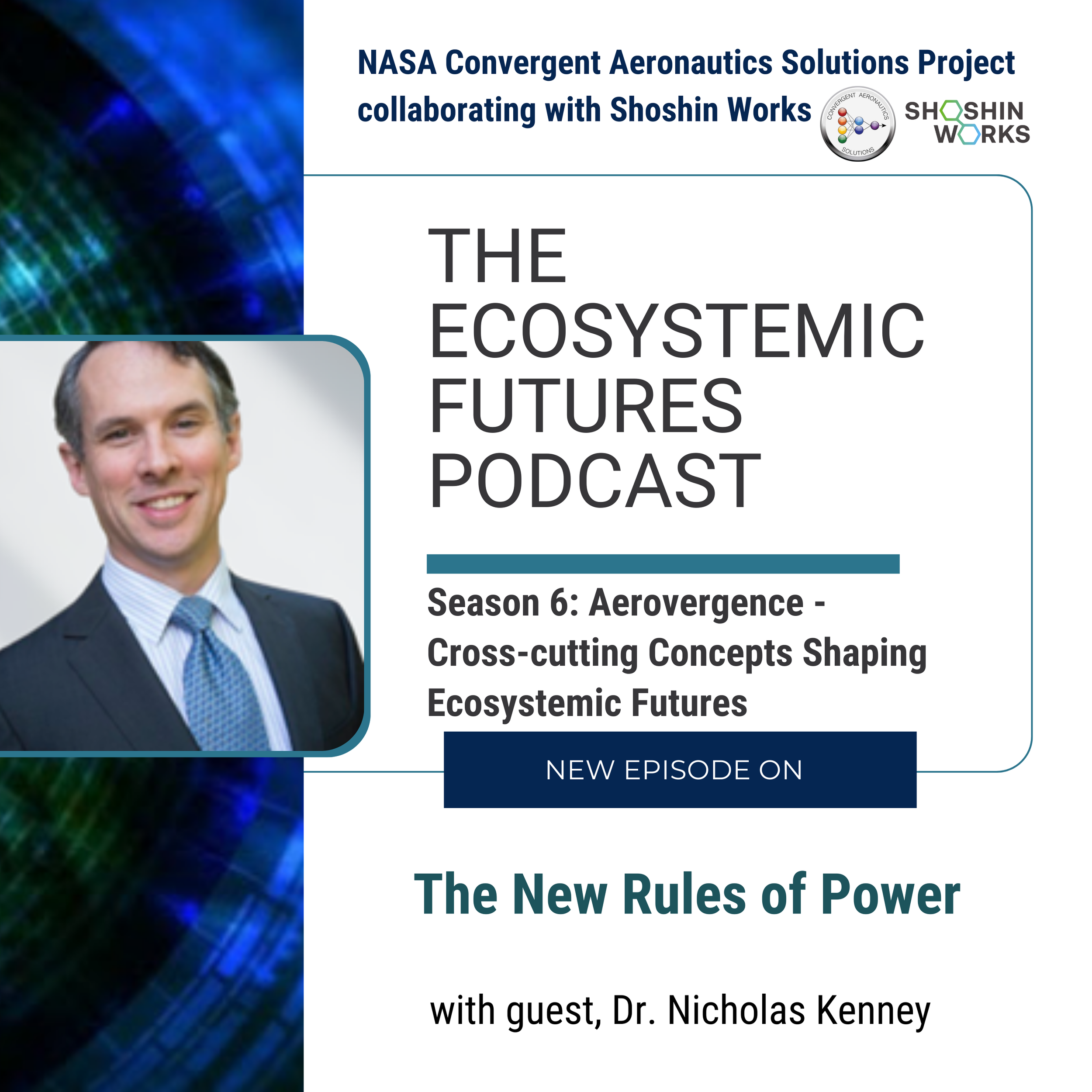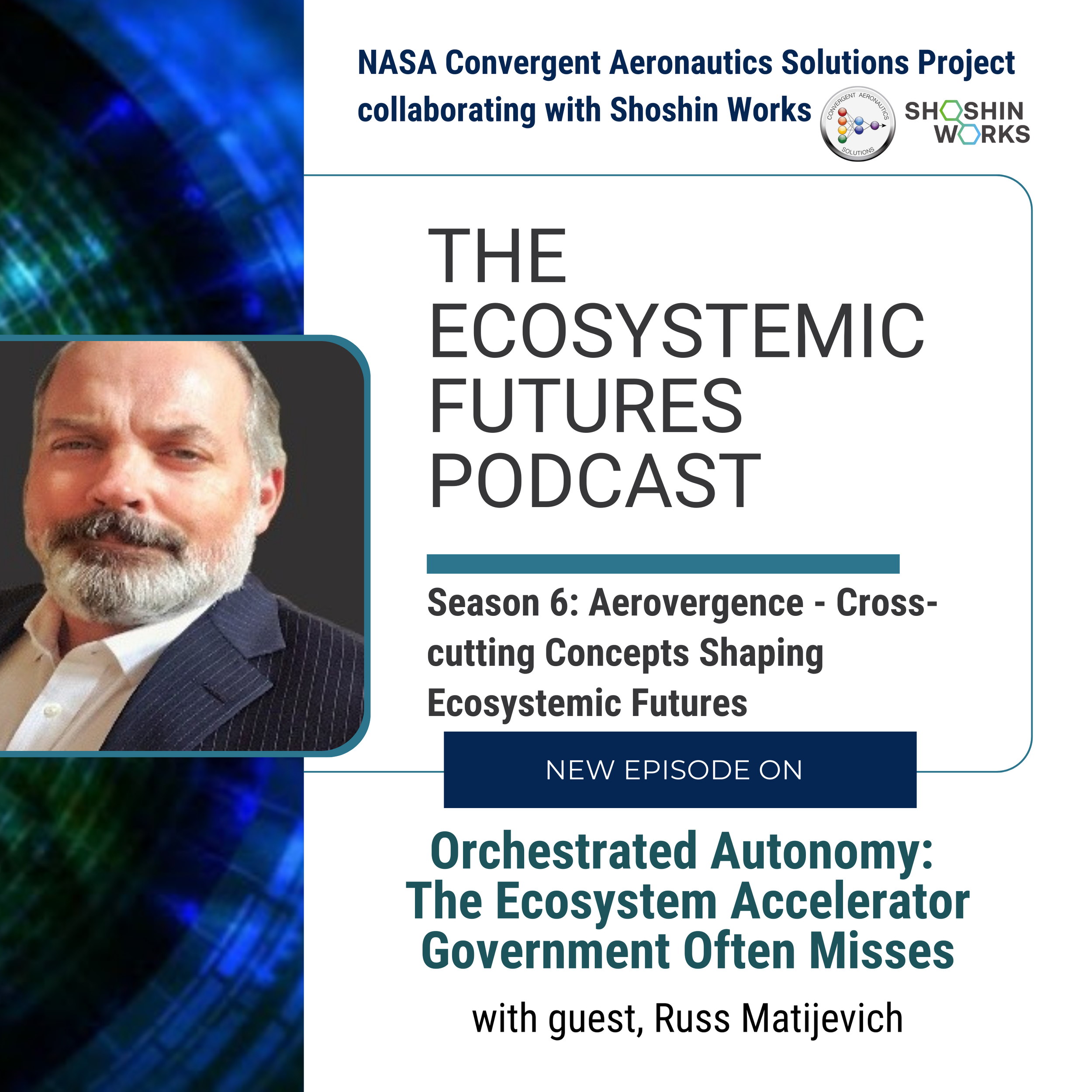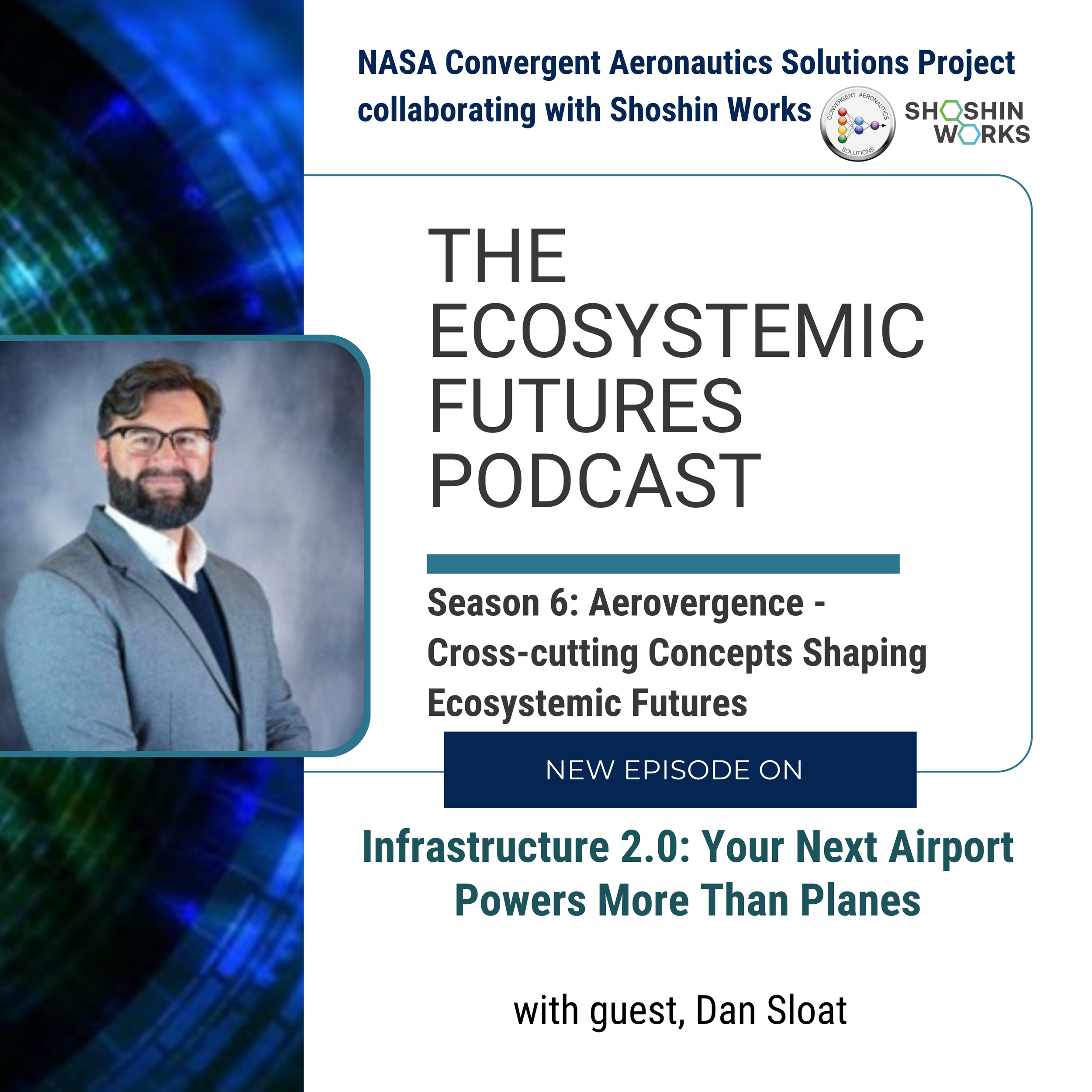
The Gulf as One System: Bahrain's Aerospace Ecosystem
Many organizations get too big to succeed. Bahrain is small enough to call the minister and align an ecosystem over coffee. That's not a limitation—it's infrastructure. Leena Faraj spent a decade proving that relationship density beats bureaucratic scale.

The 'D' Got Deleted: How VC Funding Broke the Innovation Ecosystem
Last week's whitepaper isn't production-ready. But someone's already pitching it to your board. Kence Anderson has deployed 100+ autonomous AI systems for Fortune 500 companies—and watched venture capital create a research-to-PR pipeline that skips development entirely. The 'D' in R&D got deleted. Hype cycles got amplified.

Stack or Stall: Why Credentials Collapse but Ecosystems Compound
Last year's Chemistry Nobel went to non-chemists. The lasting power of purely domain-specific credentials is collapsing - but David Julian has seen this pattern before across four technological revolutions and knows what compounds instead.

Engineering Heritage: Transforming Departing Expertise into Operational Capability
Operators with 30 years of pattern recognition leave for competitors. Engineers carrying legacy system intelligence depart. Everyone understands the risk. Few solve execution: systematically extracting tacit intelligence that experts can't articulate because it operates below the conscious threshold.

Accelerating the Hydrogen Stack
Hydrogen infrastructure requires billion-dollar cryogenic systems. That's the conventional wisdom keeping hydrogen grounded. Dr. Jalaal Hayes proved it's wrong—and the implications for expeditionary operations are immediate.

Engineering Velocity: Unlocking Value Constellations
The most transformative leaders understand that building ever-larger organizational infrastructure is counterproductive. Instead, they leverage resources and achieve impact by engineering robust, trust-based networks.

Ecosystemic Infrastructure: Unlocking Complex Systems Intelligence
Information management delivers data. Knowledge management unleashes organizational intelligence - transforming how multi-stakeholder ecosystems coordinate, decide, and optimize performance across dynamic and complex networks.

Mission as Organizing Principle: How Purpose Shapes Ecosystems
Mission functions as a powerful organizing principle in market-based ecosystems. Faisal Hoque, a three-time Deloitte Fast 50 winner and transformation partner to DoD and CACI, reveals how architecting purpose into systematic structures creates a gravitational pull, drawing diverse actors into a coordinated flow. Key insight: exemplary architecture doesn't constrain innovation - it releases latent organizational potential into directed motion.

From Command Centers to Cognition Networks: The New Architecture
Traditional centralized control is obsolete. When dynamic markets and autonomous systems generate orders of magnitude more data than they can transmit, intelligence must live at the edge - and this constraint is revolutionizing everything from spacecraft to supply chains to healthcare.

The Space Manufacturing Revolution That Changes Everything
Gravity isn't just a physical force—it's an economic barrier costing America trillions in unrealized breakthroughs across semiconductors, pharmaceuticals, and defense technologies.

The New Rules of Power
Traditional geopolitical analysis is dead. A $10,000 drone can now destroy a $100 million military platform—and this "budgetary exhaustion" strategy is already transforming how smart companies compete. We need systems thinking to navigate the four forces reshaping global power: balance of power, technology, climate change, and the nature of warfare.

Orchestrated Autonomy: The Ecosystem Accelerator Government Often Misses
The Apollo Program achieved humanity's most significant technological leap through "orchestrated autonomy”, a hidden methodology for ecosystem velocity and optimization that modern government partnerships miss. Breakthrough insight? True innovation requires autonomous components working independently first, then strategic orchestration second.

The 1-Ton Shock: Why Single Solutions Fail Complex Systems (Quantum Cities Reveal All)
The revelation that shattered systems thinking: Replacing every combustion car with electric vehicles improves urban efficiency by only 6%—revealing why isolated optimizations fail in complex ecosystems.

Infrastructure 2.0: Your Next Airport Powers More Than Planes
Transportation infrastructure is about to flip inside-out. The revelation? Advanced Air Mobility isn't just creating flying cars—it's concurrently addressing energy opportunities by transforming airports from power consumers into community power providers.

Balancing the AI Equation: Why AI Needs More Than Just Algorithms
In this episode, Wendy Gonzalez, CEO of Sama, joins us to discuss the complexities and opportunities of AI implementation. Together, we explore the balance between business strategy, cost, and environmental impact in AI, along with the rising energy demands and potential of renewable solutions.

The Internet of Skills: Revolutionizing Healthcare and Arts Through Remote Collaboration
In this episode, we are joined by guest Mischa Dohler, Vice President of Emerging Technologies at Ericsson, as we explore the revolutionary concept of the "Internet of Skills." Dohler explains how emerging technology seeks to democratize access to skills by enabling remote, real-time expertise transfer through digital platforms.

AI Simulations: Shaping Societal Governance and the Future of Interaction
In this episode, we dive into the cutting-edge world of AI simulations and their transformative impact on societal governance. Rob Auten, CEO and co-founder of Hexgram, shares insights from his experience developing AI-powered worlds for gaming and beyond.

Healthcare Futures: Innovation, Incentives, and Governance
In this episode of the Ecosystemic Futures podcast, we explore the transformative potential of advanced technologies in healthcare with Katie Meyer, Vice President of Public Affairs at Novocure.

Navigating the Frontier of Deep Tech: Balancing Innovation, Sustainability, and National Security
This episode of the Ecosystemic Futures Podcast explores the opportunities and challenges of deep tech innovation, with a focus on emerging technologies like quantum computing, fusion energy, and their implications for society, industry, and national security.

The Sky is No Longer the Limit: Exponential Potential of the Space Ecosystem
Anna Brady-Estevez and our hosts discuss what it takes to stand up a new layer of infrastructure - extending our industries, economies, and possibilities into the vast expanse of the space economy.
